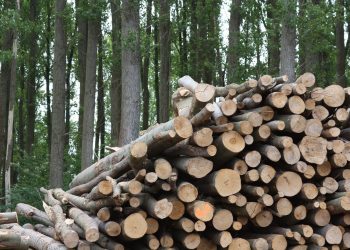Africa needs to invest more in scientific research resulting in innovations that will tackle food and nutrition insecurity says a leading plant geneticist Prof. Eric Danquah, the founding director of West Africa Center for Crop Improvement (WACCI) at the University of Ghana.
“The surest sustainable pathway to development in Africa is through agriculture. We need more funding and related investment including the next generation of scientists, seeds systems and value chains,” says Prof. Danquah, who is the 2022 Africa Food Prize laureate for expertise, leadership and grantsmanship skills that led to the establishment and development of WACCI which has evolved into one of the largest plant breeding PhD programmes in Africa.
The $100,000 Africa Food Prize is the preeminent annual award that recognizes outstanding individuals or institutions that are leading the effort to change the reality of farming in Africa.
Africa Food Prize Committee President and Chairperson, Olusegun Obasanjo, former President of Nigeria, in announcing Prof. Danquah as the winner of the Africa Food Prize said: “Prof. Danquah’s leadership in genetic innovation inspires the future of food security and nutrition in Africa and has made a tangible difference to how a new generation is working to improve African food systems.”
Investing in agriculture, feeding and nourishing Africa
In 2006, African Heads of State committed to allocating at least one percent of Gross Domestic Product (GDP) of national budgets into Research and Development (R&D) spending by 2010. None of the countries have achieved this target.
“Many African countries have not even met the commitment made to investing one percent of the GDP in research and development and it has become important that Africa invests in science to unlock innovations that will transform its development, the time is now,” Prof. Danquah said in an interview with the Alliance for Science.
WACCI, a partnership between the University of Ghana and Cornell University, USA, was established in June 2007 with funding from the Alliance for a Green Revolution in Africa (AGRA), at the University of Ghana, to train Plant Breeders in Africa, working on the improvement of African crops in local environments for farmers in Africa.
While there is sketchy data on the number of plant breeders in Africa, Danquah estimates that each country needs at least two well-trained plant breeders for every crop in every agro-ecological region who can use both conventional and modern techniques to develop new crops.
“It is the skilled plant breeders who will develop the innovations that will impact positively the productivity of our staple crops which are the lowest yielding globally at the present time,” Prof. Danquah noted, adding that addressing brain drain will accelerate the development of a critical mass of scientists who will work towards the transformation of agriculture on the continent.
“Africa has scientists that are innovating to change the food landscape but African governments are not investing in science research as they should,” Prof. Danquah lamented, pointing that Africa has for far too long paid lip service to investment in agriculture.
In 2003, African Heads of State and government signed the Maputo Declaration on Agriculture and Food Security in Africa, committing to investing at least 10 percent of national budgetary resources to agriculture and rural development policy implementation. Ten years later, they signed the Malabo Declaration on Accelerated Agricultural Growth and Transformation for Shared Prosperity and Improved Livelihoods that reaffirmed the Maputo commitments but many countries are off track on the goals and targets.
Poor policies that do not stimulate local production and attract investment into the sector have been blamed for the high food import bill for Africa, which remains one of the hotspots for hunger, undernutrition and malnutrition, especially among children under five years.
The urgency to accelerate food production and productivity in Africa has come under spotlight on the back of the impacts of climate change and poor crop yields in agriculture. Plant and seed breeders with an intimate knowledge of what Africa needs are missing, argues Prof. Danquah.
Wonders at WACCI
Through his leadership, WACCI has developed maize hybrids which are the highest yielding in Ghana, yielding between 9 and 11 tonnes per hectare and hybrid tomato varieties which yield over 48 tonnes per hectare.
“We have worked in partnership with the World Vegetable Center, to release three hybrid tomato varieties which yield over 48 tonnes per hectare. Assuming we can get the private sector to access these varieties, we do not have to import tomato paste from China, tomato seeds from France and the US. We can cut down on tomato imports because we will be self-sufficient,” he said.
According to the Africa Development Bank (AfDB), agriculture contributes about 30 per cent to the continent’s GDP. However, Africa is a net importer of food, spending up to $50 billion annually, which is projected to grow to $110 billion by 2030 unless the continent takes action to produce more healthy food in an environmentally friendly and sustainable way.
Promoting African science talent for Africa
“This award has implication for sustainability for the work that we have done because we are nowhere near meeting our aspirations as a continent,” Prof. Danquah remarked, adding that there is great need to attract private sector investment in agriculture development and science research.
Prof. Danquah said he will invest the prize money into the Eric Danquah Foundation, he founded in 2018, after receiving the $100 000 Global Confederation of Higher Education Associations for Agricultural and Life Sciences (GCHERA) World Agriculture Prize (WAP).
The Foundation launched its flagship programme, the Highflyers in Plant Breeding & Genetics Programme at WACCI. In addition, the Foundation has linked mentees to mentors who are equipping them with the right skills and knowledge to make them game-changers and history makers in modern plant breeding for agricultural transformation, Prof. Danquah says.
Science education is the key
He emphasized that “we need to look down even the high schools and basic schools to ensure that they are grounded properly in science and get them to love science as the game-changing intervention for national development.”
“The time has come for us to attract smarter people into science for development. I believe that if investors could access the funding they need so that they could establish the partnership they need to develop there would be a partnership between institutions in the global North and global South in the use of science for innovations.
Plant breeding programmes are critical in addressing food productivity challenges as well as in eliminating malnutrition. Prof. Danquah opines that Africa’s indigenous crops, such as sorghum, millet, cassava, yam, plantain, cocoyam, taro, bambara, groundnut and cowpea, have not been well researched yet they hold the key to addressing food and nutritional challenges.
O artigo foi publicado originalmente em Cornell Alliance for Science.




















































